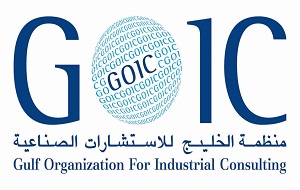
Gulf Organization for Industrial Consulting (GOIC) will hold a workshop on macroeconomic indicators from November 17-20 at the organization’s headquarters in Doha.
The training targets economic and financial analysis staff within governmental institutions backing the industrial sector. It is suitable for various businessmen, since its concepts are developed to guarantee that all participants willing to benefit from this course understand them. In this regard, continuous communication channels will be built with participants to maximize the benefit from this course through practical applications during their daily jobs.
The course aims to boost the performance of the industrial sector’s staff and provides them with benchmarks to process economic data according to the latest international standards. It includes a series of topics covering basic economic concepts while focusing on current standard indicators, including composite indicators linked with control and assessment systems, economic sector development dynamics and industrial productivity levels. Furthermore, it clarifies the link between the industrial sector and governmental institution services.
Moreover, the course qualifies participants to process macroeconomic indicators by identifying basic concepts of macroeconomic variables, latest basic variables and measurement standards used in international databases, implications of indicators and indicator concepts in their traditional, composite and competitive models, levels of variation in the contemporary standard databases, their specialty fields, indicator development methods and metadata standards.
Several themes will be tackled during this course including basics of indices development which include basic concepts of the composition of indicators, their implications, forms, controls, areas of use and benefit, the development of metadata leading to various standard indicators and composite competitiveness indices, basic economic concepts clarifying key dimensions of economic activities, gross domestic product (GDP) estimation methods and elements, gross national income (GNI) elements, general level of prices, price measurement, inflation, budgeting, aggregate demand and overall balance.
In addition to that, the training highlights industrial and economic terminology and participants will become acquainted with production economies of the industrial sector, recognized performance standards used in assessing industrial production levels and competitiveness, industrial performance indicators focusing on value-added of production factors. Not only economic performance concepts will be revisited, but participants will also have the opportunity to learn some traditional performance terms aiming at assessing the levels of national accounts and their importance in determining supply and demand, market balance and overall balance.
Topics will also cover impact of economic policies on the development of the industrial sector, financial and monetary policies and their role in rectifying economic course, production stimulation systems and production and exportation competitiveness, key concepts related to the evolution of the monetary system, monetary indicators and levels of cash transactions in current financial markets.
The workshop sheds light on economic policy dynamics and their relation to industrial production. Participants will have the opportunity to analyze economic variables in light of economic policies suggested to boost the contribution of the industrial sector in achieving economic development, creating job opportunities, improving income levels and guaranteeing wellbeing of societies.
Source : Qatar News Agency












